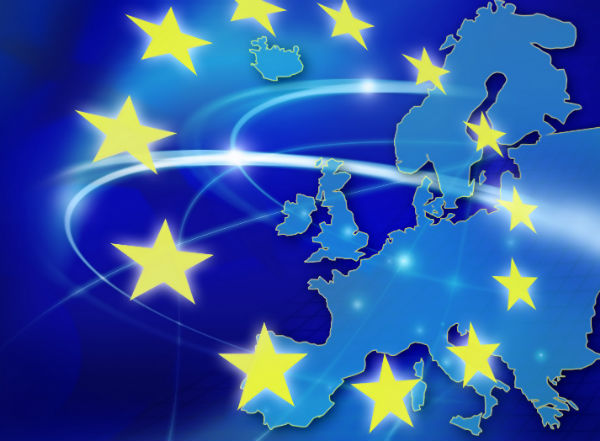EU Reveals Ambitious Plan For Digital Single Market

Europe unveils its plan to tackle American domination of the digital world, but will it work?
The European Union has unveiled plans it hopes will make the region more digitally competitive in an effort to ease tensions caused by American domination.
Today it officially revealed plans to create a ‘Digital Single Market’ that it hopes could herald pan-European telecom networks, borderless digital services, and a wave of new European tech start-ups.
Digital Single Market
 So what exactly is the digital single market? It has been mooted for a few years now, but think of it like the current single market in Europe, where trade and services takes place across the continent, with very little obstruction from national borders.
So what exactly is the digital single market? It has been mooted for a few years now, but think of it like the current single market in Europe, where trade and services takes place across the continent, with very little obstruction from national borders.
The EU hope to mirror this free trade environment but in the digital world.
The EU points out that at the moment digital barriers are creating online sales problems, in that only 15 percent of people shop online from another EU country. And only 7 percent of SME’s sell across borders. This means that startups and other firms that rely on the Internet, miss potential growth markets.
The EU wants therefore to “tear down regulatory walls and finally move from 28 national markets to a single one.” It says that a fully functional Digital Single Market could contribute 415 billion euros (£272bn) per year to the European economy and create hundreds of thousands of new jobs.
Its strategy is gathered under three central pillars: to create better access for consumers and businesses to digital goods and services across Europe; create the right conditions and a level playing field for digital networks; and maximise the growth potential of the digital economy.
“Today, we lay the groundwork for Europe’s digital future. I want to see pan-continental telecoms networks, digital services that cross borders and a wave of innovative European start-ups,” said commission president Jean-Claude Juncker. “I want to see every consumer getting the best deals and every business accessing the widest market – wherever they are in Europe. Exactly a year ago, I promised to make a fully Digital Single Market one of my top priorities. Today, we are making good on that promise.”
Sixteen Point Plan
Fine sounding rhetoric aside, how does the EU hope to accomplish such a lofty goal? Well the EU outlined 16 key actions grouped under the above three pillars, which the Commission said it would deliver by the end of 2016:
New rules will include making it easier for cross-border e-commerce; better enforcement of consumer protection laws; more affordable and efficient parcel delivery; the halting of geo-blocking (where certain consumers from certain countries are denied access to a website); better European copyright laws, and reducing the admin burden from different VAT laws.
And the commission also revealed that it has launched an antitrust competition inquiry into the e-commerce sector in the European Union. It will examine potential barriers erected by companies to cross-border online trade in goods and services. Search engines like Google, and e-commerce websites such as Amazon.com could be dragged into this.
“European citizens face too many barriers to accessing goods and services online across borders,” said Margrethe Vestager, European Commissioner . “Some of these barriers are put in place by companies themselves. With this sector inquiry my aim is to determine how widespread these barriers are and what effects they have on competition and consumers. If they are anti-competitive we will not hesitate to take enforcement action under EU antitrust rules.”
Others steps to create the Single Digital Market include overhauling European telecom rules, a revision of the audiovisual media framework, tighting up the handling of personal data, tackling the cyber security problem, freeing the movement of data, defining standards and interoperability, and supporting a “digitally inclusive society.”
Earlier this year, a European Commission report found that the UK has one of the leading digital economies in Europe.
Denmark came out on top of the 28 EU nations, followed by Sweden, The Netherlands, Finland and Belgium. The UK was in sixth position, with Romania in last place.
What do you know about Europe’s role in Tech history? Take our quiz!